The Vegetarian/Vegan Diet - Doing It Right
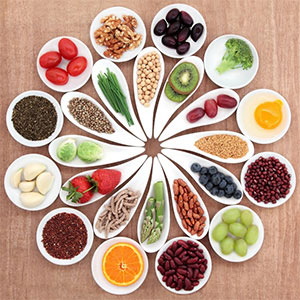 When it comes to eating vegetarian foods, and taking one step further and becoming a vegan, it is very important to understand not only which food choices are healthy, and which aren't, but also understand how unhealthy food choices can quickly cause us to become deficient in some important nutrients.
When it comes to eating vegetarian foods, and taking one step further and becoming a vegan, it is very important to understand not only which food choices are healthy, and which aren't, but also understand how unhealthy food choices can quickly cause us to become deficient in some important nutrients.
For some, concerns about nutritional deficiencies are ignored in favor of taking all sorts of supplements, ranging from multivitamins and minerals, to protein bars and protein shakes. This is definitely not a healthy approach to vegetarian or vegan living. Most of these supplements are synthetic, many come from China, and some of the common synthetic vitamins sold today have been shown in clinical studies to be very damaging to our health.
Let's take a look at how to make healthy food choices when it comes to eating either a vegetarian diet or a vegan diet, and how to avoid foods that are not only unhealthy choices, but can reduce these diets to just another version of standard American junk food. We will also take a look at the question of supplements, and what, if any, you may need to consider taking.
Foods to Choose
Foods to Avoid
There are many food manufacturers that have jumped on the vegetarian and vegan food bandwagon to provide a huge variety of options. Although some offer some wonderfully healthy choices, most of these are highly processed meals and snacks that have no place in your body.
Just because the term "vegetarian" or "vegan" is slapped onto a food package, along with pretty pictures and misleading words such as "healthy" and "natural" (terms which mean very little and are very loosely regulated), does not mean they are healthy... or natural. There are many foods filled with chemicals and hydrogenated oils that use these words on their packaging.
Let's take a look at some of the offending foods to avoid:
| Processed & Refined Foods |
|
Most breads, cereals, pastas, rice, packaged dinners, and meat substitutes, etc. are heavily refined and loaded with genetically modified ingredients we should not be eating. Refined grains upset the normal blood sugar balance in the body by breaking down quickly into simple sugars, hitting the bloodstream rapidly. These foods alter insulin production and exhaust the pancreas and/or adrenals over time, contributing to diabetes. Sugar and salt are now added to almost every food item, from ketchup to vegetable soups. Refined sugar includes brown sugar, white sugar, xylitol, corn syrup, high fructose corn syrup (and all its derivatives), and all artificial sweeteners.
Avoiding Refined FoodsBy spending most of your time in the fresh produce department, you significantly reduce (or eliminate) any refined foods in your diet. When you do head on over to other sections of the supermarket and pick up a packaged food, read the label very carefully. There are thousands of additives and chemicals that have found their way into almost every refined food item, and the only way to avoid them is to look at the ingredient list. If you see any chemicals or ingredients you do not recognize as from whole foods, then put it back on the shelf (or in the freezer). But navigating an ingredient list can be quite challenging! For help on what to look for and what to avoid when it comes to food labels, head on over to the Body Healer protocol for help with not only making the best food purchasing choices, but also getting rid of the toxic chemicals in your home in favor of much safer products for your entire family - furry friends included! |
| Processed Soy / Soy Milk & Meat Substitutes |
|
Traditional cultures ate soybeans (known as edamame) as a whole food, or made fermented soy products such as tofu, tempeh, miso, and tamari - all of which were eaten in much smaller quantities and never as the genetically modified processed soy of today. Today’s trend to consume highly processed soy (now present in thousands of vegetarian and vegan foods) is at the direct expense of our health. Not only are today's meat substitutes filled with this highly processed and genetically modified soy, they also contain genetically modified wheat protein (wheat gluten) which many people are now sensitive to. Avoid these products completely. |
| Refined Oils / Hydrogenated Oils (Trans Fats) |
|
These are not only toxic to the body, but are a significant contributor to weight gain and free radicals in the body. |
The Moral Stance Factor
When it comes to choosing a vegan or vegetarian diet, it is important to recognize that this is just one way of eating, and not the only way. It is especially important to honor the choices others make and not force our viewpoints upon people who have no interest in changing their eating habits, or make them feel inferior because their choices are different to yours.
Being a vegetarian myself, I am often very irritated when I meet other "holier than thou" vegetarians and vegans who feel that their eating choices are the right ones, and everyone else's are wrong. Respecting the dietary choices of others when being in their presence is important.
Teach Others to Eat Meat Responsibly
For some vegans and vegetarians who have educated themselves on the cruelty experienced by millions of animals in US factory farms, they find being around those who eat factory-farmed meat upsetting and offensive. Do you remember when you, too, were unaware of factory-farming practices? Do you remember when the subject of meat-eating was never even on your radar screen?
If others choose to eat factory-farmed meat, consider helping them understand why organic and sustainable meat and fish choices are much more healthier, humane, and morally responsible options. If they continue to eat factory-farmed meat, even after knowing that it contributes to animal cruelty, then simply choose to no longer be in their company if you find it upsetting or unacceptable.
The majority of the American public are not even sure what factory farming is, never mind being aware of just how deplorable and inhumane this practice is, and that countries such as all of Europe, Australia, New Zealand, and many other countries have banned it. Helping to educate them in a non-confrontational and caring manner will go much further in helping them make better and healthier choices, rather than being intolerant and judgmental.
How to eat meat responsibly...




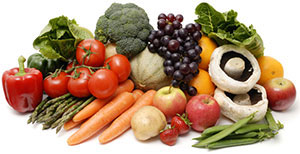 All vegetables including asparagus, beets, bell peppers, Brussels sprouts, cabbage, carrots, cauliflower, celery, cucumbers, eggplant, garlic, green beans, kale, leeks, lettuces, mushrooms, olives, onions, potatoes, spinach, squash (winter and summer), Swiss chard, tomatoes, and yams. Feel free to include any others not listed others you enjoy.
All vegetables including asparagus, beets, bell peppers, Brussels sprouts, cabbage, carrots, cauliflower, celery, cucumbers, eggplant, garlic, green beans, kale, leeks, lettuces, mushrooms, olives, onions, potatoes, spinach, squash (winter and summer), Swiss chard, tomatoes, and yams. Feel free to include any others not listed others you enjoy.
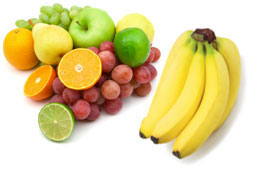 All fruits including apples, apricots, bananas, berries, cherries, dates, figs, kiwis, grapes, mangoes, melons, nectarines, oranges, papayas, peaches, pears, persimmons, pineapples, plums, pomegranates, raisins, raspberries, and strawberries.
All fruits including apples, apricots, bananas, berries, cherries, dates, figs, kiwis, grapes, mangoes, melons, nectarines, oranges, papayas, peaches, pears, persimmons, pineapples, plums, pomegranates, raisins, raspberries, and strawberries.  Learn more about the amazing antioxidants:
Learn more about the amazing antioxidants: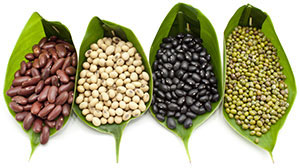 All legumes such as beans, peas, and lentils. Legumes contain a more complete set of amino acids (the building blocks of protein) than many other plant foods.
All legumes such as beans, peas, and lentils. Legumes contain a more complete set of amino acids (the building blocks of protein) than many other plant foods. 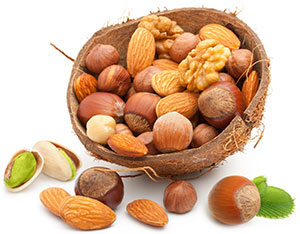 Nuts include almonds, Brazil nuts, cashew nuts, hazelnuts, macadamia nuts, peanuts (technically a legume), pecans, pine nuts, and walnuts.
Nuts include almonds, Brazil nuts, cashew nuts, hazelnuts, macadamia nuts, peanuts (technically a legume), pecans, pine nuts, and walnuts.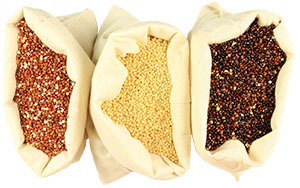 A staple in many indigenous cultures around the world, whole grains such as rice, millet, barley, quinoa, amaranth, buckwheat, rye, oats, and oatmeal, are very different from the processed and genetically modified grains in today's western society. Quinoa is one of the best protein plant sources on the planet.
A staple in many indigenous cultures around the world, whole grains such as rice, millet, barley, quinoa, amaranth, buckwheat, rye, oats, and oatmeal, are very different from the processed and genetically modified grains in today's western society. Quinoa is one of the best protein plant sources on the planet. 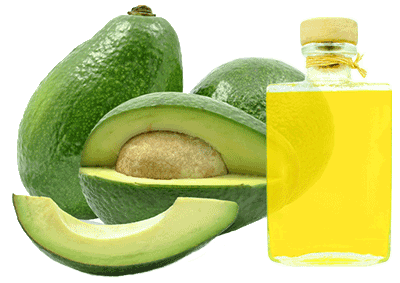 Aim to have your oils directly from whole foods, including nuts, seeds, olives, and avocados. Liquid oils are fats that have been extracted from their whole food source to create a 100% fat product. Liquid fats should only be used in very small quantities.
Aim to have your oils directly from whole foods, including nuts, seeds, olives, and avocados. Liquid oils are fats that have been extracted from their whole food source to create a 100% fat product. Liquid fats should only be used in very small quantities. 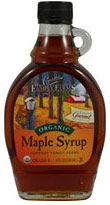 There are many different natural sweeteners to choose from, including raw honey, blackstrap molasses, brown rice syrup, coconut sugar, maple syrup, and stevia. They each have a unique flavor to add to dishes. Agave nectar is one of the more highly processed natural sugars, and for this reason I do not recommend it.
There are many different natural sweeteners to choose from, including raw honey, blackstrap molasses, brown rice syrup, coconut sugar, maple syrup, and stevia. They each have a unique flavor to add to dishes. Agave nectar is one of the more highly processed natural sugars, and for this reason I do not recommend it.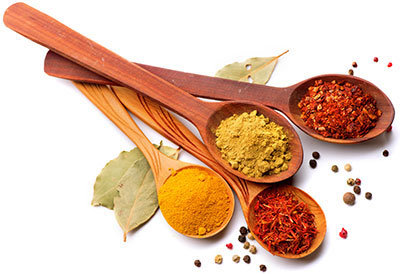 These include all herbs, seasonings, and spices. When choosing ketchup or any product that contains a mixture of ingredients, watch out for unwanted chemicals (especially refined sugar, hidden in many ketchups and mustards).
These include all herbs, seasonings, and spices. When choosing ketchup or any product that contains a mixture of ingredients, watch out for unwanted chemicals (especially refined sugar, hidden in many ketchups and mustards).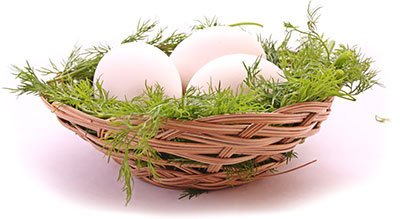 Choose eggs from free-range (pasture-raised) chickens, rather than eggs from factory-farmed chickens. These animals are kept in confined spaces and fed an unnatural and genetically modified diet of processed soy or corn.
Choose eggs from free-range (pasture-raised) chickens, rather than eggs from factory-farmed chickens. These animals are kept in confined spaces and fed an unnatural and genetically modified diet of processed soy or corn. 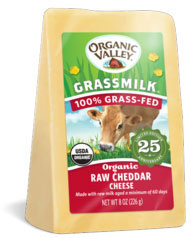 Including butter, cream, cheese, yogurt, cottage cheese, dairy-based ice-cream (no processed sugars or other unhealthy ingredients), and sour cream.
Including butter, cream, cheese, yogurt, cottage cheese, dairy-based ice-cream (no processed sugars or other unhealthy ingredients), and sour cream. 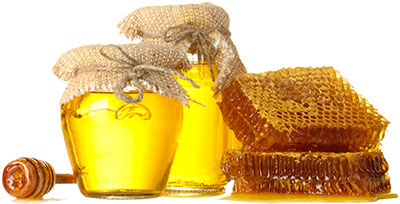 When it comes to purchasing honey, there are two choices available in stores: Raw or heat-treated (pasteurized). Always make sure the honey you purchase is clearly labeled as "raw" honey.
When it comes to purchasing honey, there are two choices available in stores: Raw or heat-treated (pasteurized). Always make sure the honey you purchase is clearly labeled as "raw" honey.  When it comes to supplements, take them only if you are tested to be deficient. By giving your body a continuous supply of healthy vegetarian foods, you have a far superior nutritional advantage. Your diet will be filled with antioxidant and nutrient rich fruits and vegetables and should require little to no supplementation. Do not fall for the hype preached by supplement manufacturers, vegetarian and vegan websites, and people who advise you to spend your money on all sorts of expensive supplements, "superfoods," and protein powders. They really are not in any position to diagnose you as needing these things.
When it comes to supplements, take them only if you are tested to be deficient. By giving your body a continuous supply of healthy vegetarian foods, you have a far superior nutritional advantage. Your diet will be filled with antioxidant and nutrient rich fruits and vegetables and should require little to no supplementation. Do not fall for the hype preached by supplement manufacturers, vegetarian and vegan websites, and people who advise you to spend your money on all sorts of expensive supplements, "superfoods," and protein powders. They really are not in any position to diagnose you as needing these things. Depending on the climate you live in and how much year-round sunlight you are exposed to, you may need vitamin D supplementation. This is especially so if you live in northern climates such as Canada, north American and northern Europe.
Depending on the climate you live in and how much year-round sunlight you are exposed to, you may need vitamin D supplementation. This is especially so if you live in northern climates such as Canada, north American and northern Europe. 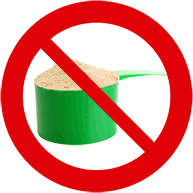 If you engage in very large amounts of physical activity each day (e.g. athletes or bodybuilders), the amount of food intake may need to be increased, but the ratio of protein does not.
If you engage in very large amounts of physical activity each day (e.g. athletes or bodybuilders), the amount of food intake may need to be increased, but the ratio of protein does not. 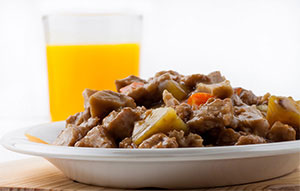 Refined foods are not only stripped of many essential nutrients, but they are generally filled with artificial sweeteners, artificial colors and flavors, artificial preservatives, and unpronounceable unnatural ingredients.
Refined foods are not only stripped of many essential nutrients, but they are generally filled with artificial sweeteners, artificial colors and flavors, artificial preservatives, and unpronounceable unnatural ingredients.